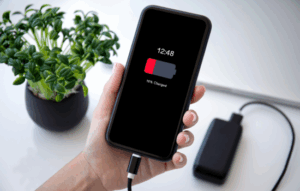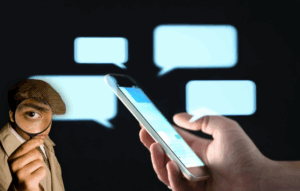Advertisements
Technology has revolutionized the way we manage our health, and glucose monitoring is no exception. Today, there are apps that allow people with diabetes or those who want to keep more precise control of their blood sugar to do so easily and efficiently.
These tools can help identify patterns, prevent complications, and improve quality of life.
Advertisements
In this article, we'll explore the best glucose monitoring apps, their features, and how they can be integrated into your daily routine.
Why use glucose monitoring apps?
Blood glucose monitoring is crucial for people with type 1 diabetes, type 2 diabetes, and prediabetes. Traditionally, this monitoring has been done with specific medical devices such as glucometers or continuous glucose monitoring sensors.
See also
- Find Out Who Is Spying On You On Social Media
- Play GTA: San Andreas Directly on your Mobile
- Play GTA V Directly on your Mobile
- Recover Your Deleted Photos: The Best Apps
- Turn your cell phone into a projector
However, apps complement and enhance this experience by offering:
Advertisements
- Automatic data recordingMany apps sync with glucometers and other devices to automatically store readings.
- Trend analysis: Charts and reports help identify patterns in glucose levels.
- Reminders: Alerts to measure glucose, take medication or eat on time.
- Connection with health professionals: Share data directly with your doctor or nutritionist.
Best apps for monitoring glucose
1. mySugr
mySugr is one of the most popular and comprehensive glucose monitoring apps. Designed for both adults and children, it integrates with various medical devices and offers features that make daily monitoring easier.
Main features:
- Sync with popular glucometers like Accu-Chek.
- Estimated calculation of glycosylated hemoglobin (HbA1c).
- Detailed reports that you can send to your doctor.
- Gamification system to motivate you to achieve goals.
Availability:
- iOS and Android.
- Free download with premium subscription options.
2. Glucose Buddy
Glucose Buddy is another excellent option, especially for those who want a holistic approach to health. In addition to recording glucose levels, it also allows you to monitor diet, exercise, and medications.
Main features:
- Compatible with Apple Health for more comprehensive analysis.
- Customizable notes to record how you feel after each reading.
- Alerts to remind you of measurements and medications.
- Options to log data manually or via connected devices.
Availability:
- iOS and Android.
- Free version and premium subscription.
3. Dexcom G6 App
Designed to be used with the Dexcom G6 sensor, this app provides continuous glucose monitoring (CGM). It's ideal for people with type 1 diabetes or those who need real-time data.
Main features:
- Continuous monitoring without the need for constant punctures.
- Real-time high or low level alerts.
- Share live data with family members or caregivers.
- Integration with smart watches.
Availability:
- iOS and Android.
- Free, but requires the Dexcom G6 sensor.
4. LibreLink
LibreLink is designed to work with the FreeStyle Libre system, a CGM device that eliminates the need for frequent pricking. The app allows you to scan the sensor and get instant readings.
Main features:
- Instant readings when scanning the sensor.
- 90-day history with charts and analysis.
- Compatible with FreeStyle Libre 1 and 2.
- Integration with third-party apps for more advanced reporting.
Availability:
- iOS and Android.
- Free download, but requires the FreeStyle Libre sensor.
5. Diabetes:M
Diabetes:M is an advanced diabetes management tool. It offers a suite of features ranging from glucose monitoring to personalized meal plans.
Main features:
- Detailed log of glucose, insulin, carbohydrates and more.
- Bolus calculator for insulin users.
- Detailed reports for medical consultation.
- Compatible with multiple devices and platforms.
Availability:
- iOS and Android.
- Free version and premium subscription.
How to choose the best app for you
Choosing the right app will depend on your needs and lifestyle. Here are some factors to consider:
- Compatibility with your devices: Check if the app works with your glucometer or sensor.
- Ease of use: Opt for apps with intuitive interfaces and clear features.
- BudgetSome apps offer basic features for free, but premium options can be more comprehensive.
- Medical recommendations: Consult with your doctor to ensure that the application you choose is appropriate for your treatment.
Additional benefits of these applications
In addition to glucose monitoring, many of these tools offer features that can improve your overall health:
- Tracking physical activities: Record exercises and their impact on glucose levels.
- Food control: Food log and carbohydrate counting.
- Personalized education: Tips to improve diabetes management.
- Emotional support: Some apps include user communities to share experiences.

FAQ Section
Are glucose monitoring apps accurate?
Accuracy depends primarily on the measuring device (glucometer or sensor) you use. Apps are complementary tools for recording and analyzing data.
Can I use these apps without a glucometer or sensor?
Yes, many allow manual data entry. However, for continuous or more precise monitoring, it's recommended to use them in conjunction with a medical device.
What is the best app if I have type 1 diabetes?
Apps like the Dexcom G6 and LibreLink are ideal for continuous monitoring, while mySugr is a versatile option.
Are these apps safe?
Yes, but make sure they comply with data privacy and security regulations, such as GDPR or HIPAA compliance.
References
- “Diabetes Apps: The Best Apps for Managing Diabetes”, Healthline.
- “The Role of Mobile Apps in Diabetes Management”, Journal of Diabetes Science and Technology.
- Downloading applications: mySugr, Glucose Buddy, Dexcom G6, LibreLink, Diabetes:M.





I truly appreciate your technique of writing a blog. I added it to my bookmark site list and will
Great job, keep it up!
Thanks for simplifying a difficult subject.